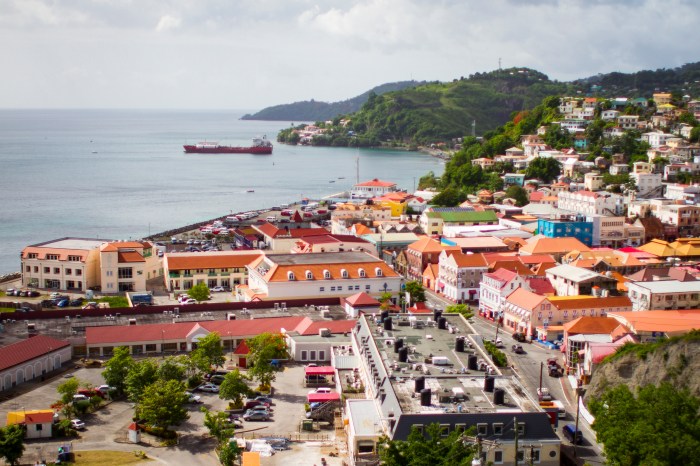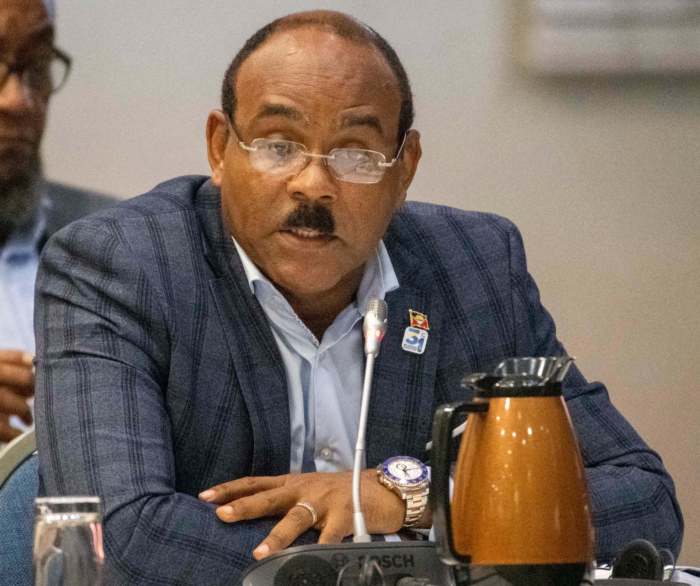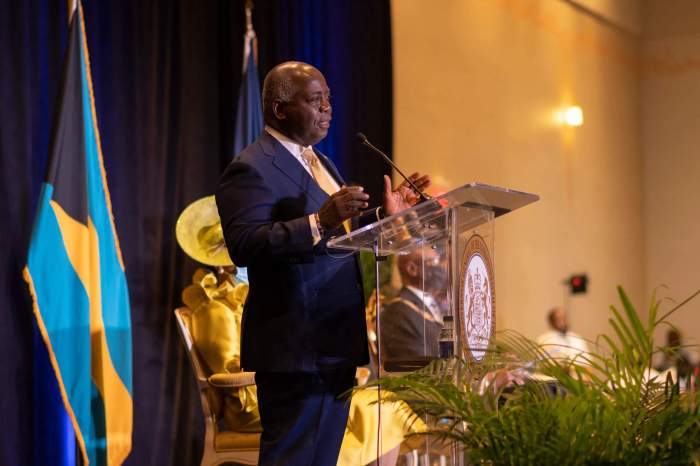Antigua
Antigua’s Police Commissioner Atlee Rodney says there has been a decline in criminal incidents across the country despite the challenges.
The commissioner stated the Criminal Investigations Department (CID) has observed a noticeable decrease in criminal matters, signalling a potential step forward in the realm of the public safety.
He added that while the decline in criminal activity is encouraging, the public needs to remain vigilant and cautious. He also emphasised the importance of taking advantage of crime prevention tips provided by law enforcement.
But in spite of the positive news, the problem of illegal firearms continues to be a significant concern for law enforcement. Rodney highlighted that the global issue of illegal firearms isn’t isolated from this jurisdiction.
He said about 30 firearms have been confiscated this far this year and that some of these seizures were made possible through the co-operation of residents.
Bahamas
Bahamas Prime Minister Philip Davis KC says due to the lack of effective banking mechanisms, it was important for the government to launch its own Central Bank Digital Currency (CBDC).
Davis said while delivering the feature address at the Trinidad and Tobago Coalition of Services Industries (TTCSI) “Doing Business with the World” series held at the Hyatt Regency in Port-of-Spain, Trinidad recently.The prime minister said since the country’s launch of the world’s first CBDC in 2020, the goal was to have widespread adoption.
“This also requires working with the country’s commercial sector, to encourage wider acceptance of digital payments,” Davis outlined.
According to the prime minister, there are millions of unbanked people in the Caribbean and Latin America who require solutions and some of these solutions will come from within the banking sector itself.
Davis noted cryptocurrencies and digital assets had been advanced as an accessible solution for unbanked populations. While barriers such as internet access and digital literacy can impact uptake, he said, advocates pointed to the potential for cheaper and faster paymentsas decentralised digital ledger technologies reduced the need for intermediaries.
Barbados
Prime Minister Mia Mottley says that over the next six months, her administration will establish a legacy fund to build the island’s capacity to finance climate resilience.
The Prime Minister declared that Barbados was “still in transformation mode” and the time has come to increasingly focus on tackling climate crisis.
She added that it was also critical that Barbados move beyond using only gross domestic product to measure economic growth.
“Financial capacity is critical. It is the oxygen,” she said. “In a climate-resilient world, just the pure focus on GDP will mean that we are looking to put all our eggs in one basket. That cannot work,” she added.
A legacy fund uses investment earnings to meet certain community needs without touching the principal. This allows the fund to grow over time, generating more funding.
Cuba
The government of Cuba recently announced that banks will again accept cash deposits in US dollars following the lifting of a ban prohibiting the practice.
Cubans had been unable to deposit cash into their accounts at banks and other financial institutions for almost two years.
The Cuban government brought in the ban in 2021 citing “continuing difficulties caused by the ongoing US embargo.”
The resolution by the Central Bank of Cuba (BBC) was published in Cuba’s Official Gazette recently and became effective immediately.
The resolution also stated that the “economic pressure” from the United States, which it said led to the ban in the first place, remained in place and that therefore”the root of the problem” had not been solved.
Cuba has been under US sanctions for more than six decades but the economic restrictions placed on it were further tightened under the trump administration.
Under the sanctions to it became increasingly difficult for Cuba’s Central Bank to find international banks willing to receive cash from the Communist-run island.
Guyana
Guyana has recorded 2,169 confirmed cases of dengue, with 239 patients being hospitalised and 11 deaths so far this year. With the revelation of these statistics by the Ministry of Health, the Opposition is calling on Government to up its handling of what it terms an outbreak.
A Partnership for National Unity & the Alliance for Change (APNU+AFC) Member of Parliament (MP), Dr Karen Cummings is of view that Guyana is heading towards a major health crisis.
According to Dr Cummings approximately 3,453 persons in Guyana have contracted the vector borne illness with 2,169 of the cases remaining active; inclusive of the recent death of two children, ages 9 and 11.
She said, “Circumventing, denial, or diminishing the dangers of the illness at this time, are risky responses that must be avoided.”
Dr Cummings said that the Ministry of Health has to admit sooner rather than later that there is a public health crisis; treat the situation with urgent importance.
She described as unfortunate, statements by Advisor to the Minister of Health Dr Leslie Ramsammy that “one or two cases a day is not a phenomenal number but has failed to recognise that 90 to 95 per cent of persons with dengue may have symptoms and do not feel the need to seek medical care”.
Meanwhile, the Ministry of Health in a recent statement said that that dengue is endemic to Guyana and the Region of the Americas.
The Ministry said that Guyana has recorded 2,169 confirmed cases, with 239 patients hospitalised and 11 dengue-related deaths for this year.
Jamaica
Jamaica’s Industry, Investment and Commerce Minister, Aubyn Hill, has told micro, small and medium-sized enterprise (MSME) entrepreneurs that they should be looking to produce their commodities for the overseas market in order to become profitable.
“Every entrepreneur must understand that we must export; we must not only make things that Jamaicans will eat and buy. We must lift their minds to a place where exporting is key. We cannot become rich as a country if we are selling only to our population of three million people,” he added.
He said that as head of the ‘Business Ministry’ part of his job is to move per-capita gross domestic product (GDP) from just over US$5,000 to above US$13,000, “thereby making us able to compete with countries at the top.”
Hill said he was depending on the MSME sector to make that change, noting also that the Companies Office of Jamaica (COJ) is there to assist MSMEs in becoming export-ready.The COJ registers and regulates entities ensuring they are credible when conducting business globally.
Four roadshows are being held across the island in collaboration with the Inter-American Development Bank (IDB), to enable MSME operators to access information on business development support, government incentives as well as export opportunities
IDB climate change senior specialist, Gerard Alleng, said the bank, which has provided funding of US$250,000 for the project, recognises the need for the roadshows to provide targeted support and guidance to the small business operators where they are located.



























